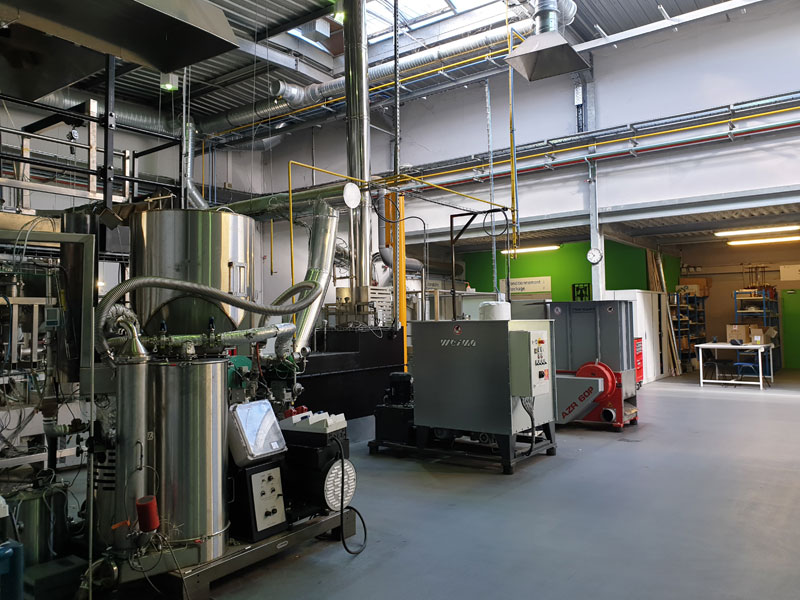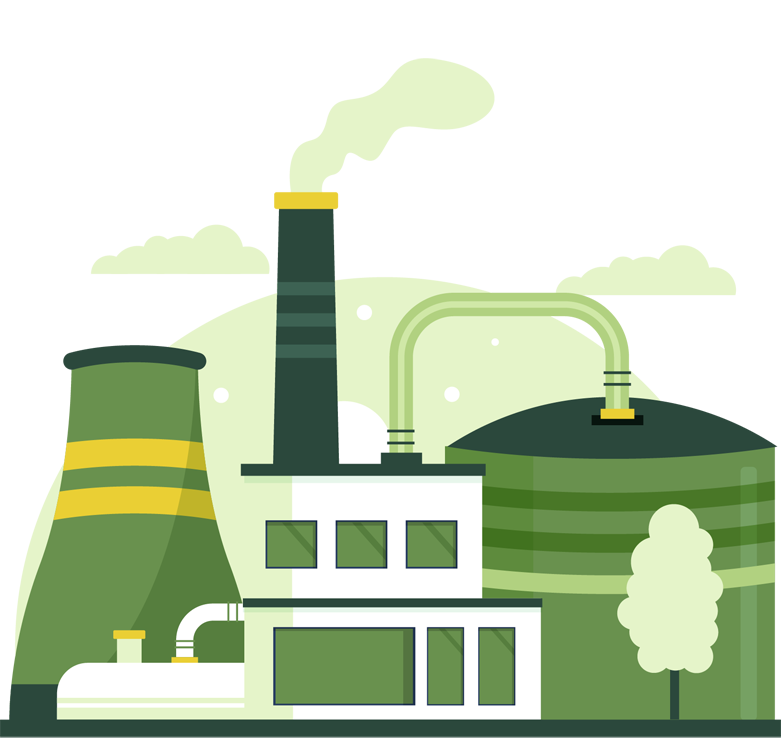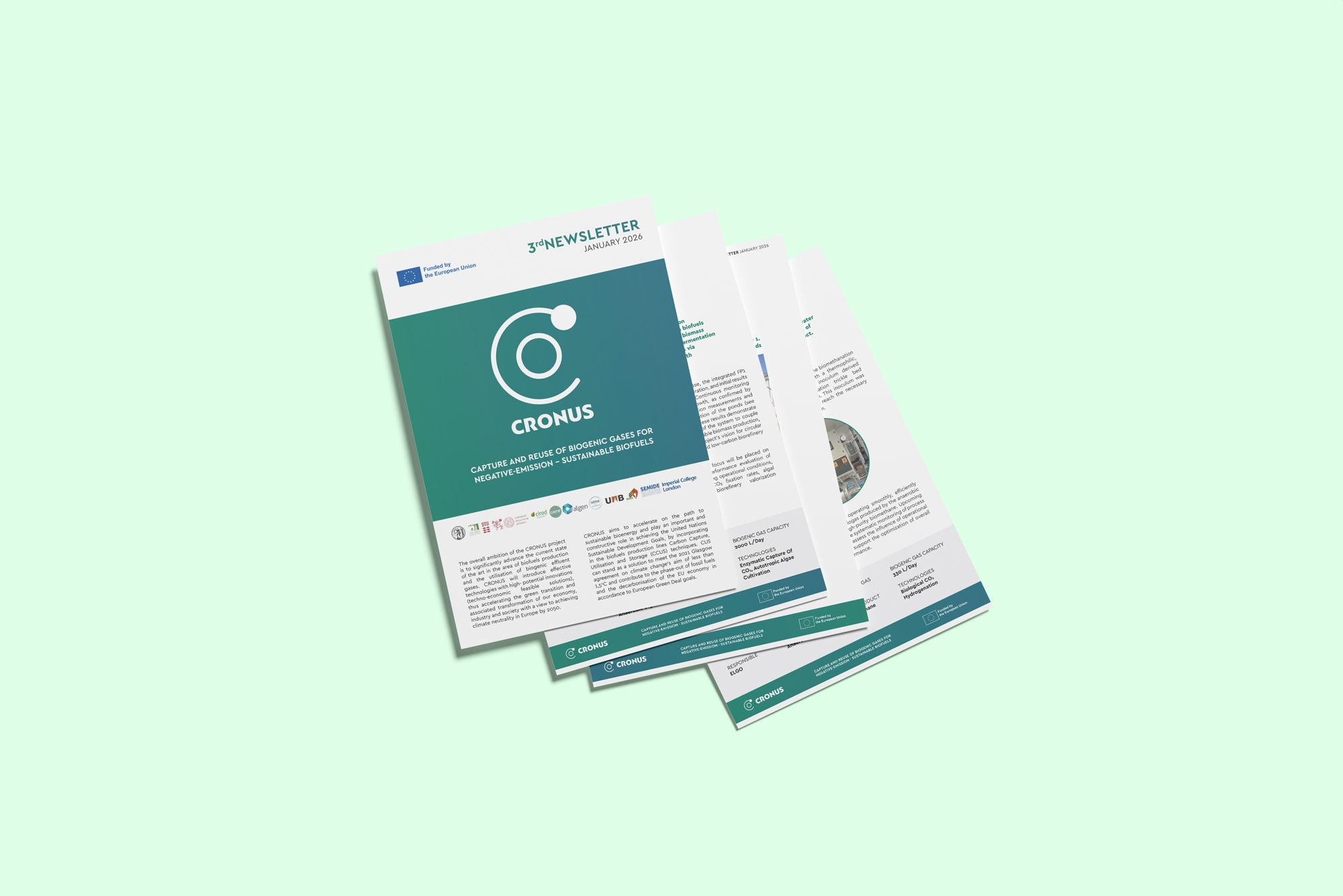
5 Functional Prototypes
CRONUS addresses the current gaps in biofuels production, namely the carbon waste and biogenic effluent gases
The overall objective of CRONUS is to develop, assess and test 5 new integrated and sustainable technological solutions for highly efficient biogenic effluent gases CUS within the biofuels value chain.
- enzymatic capture of CO2
- autotrophic algae cultivation
- biological CO2 hydrogenation
- syngas biomethanation
- biogenic carbon storage through biochar production
- in-situ biomethanation using Microbial Electrolysis Cells










